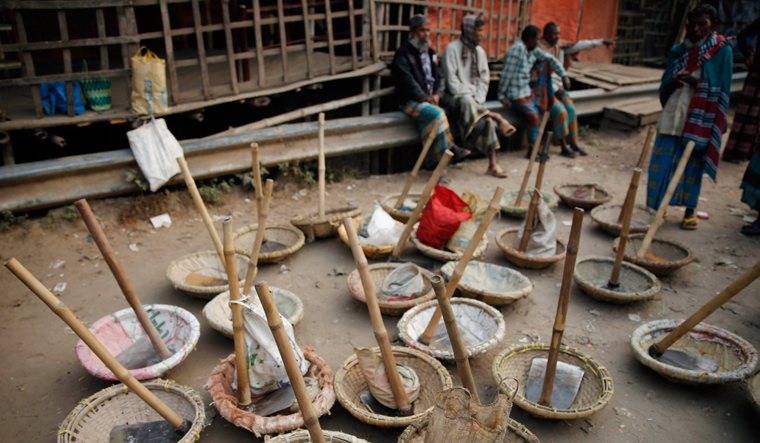There were more than 700 million workers living in poverty in emerging and developing countries who were unable to lift themselves above the USD 3.10 per person daily threshold in 2017, the International Labor Organization has said.
The rate of progress has slowed, and many developing countries are failing to keep pace with the growing labour force, ILO Director General Guy Ryder said.
"Despite significant progress, in 2017 there were still more than 700 million workers living in poverty in emerging and developing countries, unable to lift themselves above the USD3.10 per person daily poverty threshold," Ryder told International Monetary Fund (IMF) during its annual Spring meeting.
Noting that the rebound in economic growth has strengthened job creation and the global unemployment rate is expected to fall slightly during 2017-19 (after a three-year rise), he said however, the labour market recovery is uneven across country groupings, with continued rises in the numbers of people unemployed in developing and emerging economies.
Ryder told IMF that new policies are required to foster decent jobs for youth in an era of rapid technical change. The ILO estimates that 67 million young women and men are unemployed globally, and around 145 million young workers in emerging and developing countries live in extreme or moderate poverty, he said.
"New automation and digital technologies pose further challenges. The opportunities they present will demand innovative policy solutions," he said, adding that proper infrastructure and equal access to information and technology should complement investment in education and skills and effective approaches towards lifelong learning.
Ryder said that in Africa, working poverty is forecast to stall at 24 per cent of the workforce during 2017-19, with numbers rising from 104 to 110 million.
In Asia and the Pacific, the share will drop only marginally from 16 to 15 per cent and the number of workers in poverty will still be close to 300 million by 2019. The slowdown in progress threatens not only workers' individual well-being, but also our global ambition to eradicate poverty by 2030, he said.
Ryder said that policy makers must ensure that workers in advanced, emerging and developing countries all benefit from a global trading system that produces fair outcomes.
Failure to do so risks the multilateral system, as the IMF warns, with significant economic costs and political risks for all nations. Key to restoring faith are policies to ensure fairer distribution of the benefits of trade, he said.
"Stronger labour market institutions, including minimum wages, sustainable enterprises, collective bargaining and freedom of association, are the right answers to political populists who exploit income disadvantages to undermine open economies and open borders," ILO chief said.

